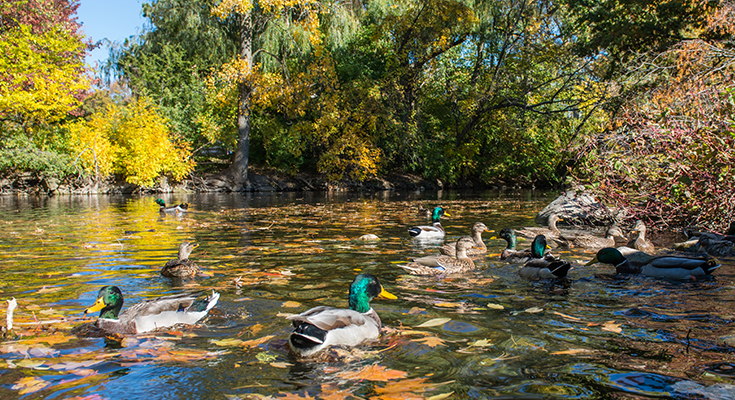MSU's tobacco ban offers paybacks for environmental protection
On Aug. 15, Michigan State University will enact a campuswide ban on the use of tobacco products, as part of an ongoing effort to ensure the community can enjoy the healthiest campus possible.
Most of us know that smoking is the primary cause of preventable death in the United States, but did you know that it is also the leading contributor to the world's litter burden? According to a study in the Journal of Environmental Research and Public Health, 1.69 billion pounds of cigarette filters end up in the environment as trash yearly. This is the equivalent, in weight, to adding 3,000 Spartan Statues worth of trash to our environment daily!
Cigarettes are not only harmful when smoked, they are dangerous long after. Cellulose acetate, the material used to make cigarette filters, is photo-degradable, but not bio-degradable. Essentially, this means that under ideal environmental conditions, ultraviolet rays from the sun can eventually break the filter into smaller pieces, but the source material never fully disappears. Instead, it only becomes diluted, releasing toxic chemicals into waterways and soil. Even when disposed of properly, the non-biodegradability of filters increases landfill demands, adds cost to waste-disposal programs and creates environmental blight in public spaces.

"Anything we do on the land surface can eventually end up in waterways, and cigarettes are a huge piece of that," says Ruth Kline-Robach, a stormwater expert in MSU's Department of Community Sustainability. "A big part of our campus Stormwater Management Program involves helping faculty, students, and visitors on campus understand the connection between the things they do, and the quality of water in the Red Cedar River."
Kline-Robach goes on to detail how cigarette waste reaches our waterways, saying, "There are hundreds of catch basins across campus, which empty directly into the Red Cedar, meaning that anything thrown onto streets or sidewalks absolutely impacts the river. Studies conducted in urban areas estimate that 28 percent of the litter in waterways is from cigarettes. That is a lot of potentially toxic material."
Campuswide smoking bans reduce the number of cigarette smokers on campus, and change the perceived norms surrounding tobacco use. They not only support the health of smokers and those exposed to secondhand smoke, but they also reduce the amount of cigarette waste produced on campus. Consequently, cigarette bans in a university setting have the potential to be a powerful prevention method.
"The tobacco ban on campus will undeniably be a net positive for us in terms of stormwater management," says Kline-Robach, "it will have direct benefits environmentally, and - specifically from my viewpoint - to the quality of water on campus."
Fred Kester, MSU Landscape Services Coordinator, is also optimistic about the paybacks the smoking ban will have on the health of campus. "Cigarette litter is part of a bigger picture, which is litter itself. If you compared the amount of litter after a campus event today versus years ago, you would see progress. I hope to see the same with cigarette waste, progress over time."
Ideally, raising attention to the issue of cigarette waste as an environmental hazard, in addition to a health risk, will encourage compliance with MSU's smoke-free policy, and reduce the amount of cigarette litter, both in the waterways and on the landscape of our captivating campus.
"We're not naïve enough to think that everyone is going to quit smoking on Aug. 15, nor enough to think no one is going to throw their cigarette litter on the ground as they come to campus," says Kester, "we know it will be a gradual process, but it's where the future is going."
For more information about MSU's ban on tobacco products, visit tobaccofree.msu.edu.

